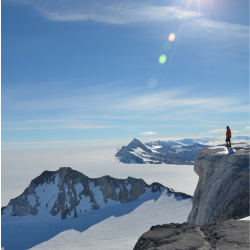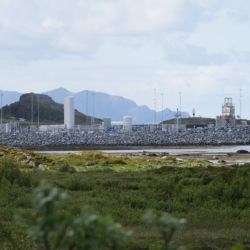-
Study
-
Quick Links
- Open Days & Events
- Real-World Learning
- Unlock Your Potential
- Tuition Fees, Funding & Scholarships
- Real World Learning
-
Undergraduate
- Application Guides
- UCAS Exhibitions
- Extended Degrees
- School & College Outreach
- Information for Parents
-
Postgraduate
- Application Guide
- Postgraduate Research Degrees
- Flexible Learning
- Change Direction
- Register your Interest
-
Student Life
- Students' Union
- The Hub - Student Blog
- Accommodation
- Northumbria Sport
- Support for Students
-
Learning Experience
- Real-World Learning
- Research-enriched learning
- Graduate Futures
- The Business Clinic
- Study Abroad
-
-
International
International
Northumbria’s global footprint touches every continent across the world, through our global partnerships across 17 institutions in 10 countries, to our 277,000 strong alumni community and 150 recruitment partners – we prepare our students for the challenges of tomorrow. Discover more about how to join Northumbria’s global family or our partnerships.
View our Global Footprint-
International Students
- Information for International Students
- Northumbria and your Country
- International Events
- Application Guide
- Entry Requirements and Education Country Agents
- Global Offices and Regional Teams
- English Language Centre
- International student support
- Cost of Living
-
International Fees and Funding
- International Undergraduate Fees
- International Undergraduate Funding
- International Masters Fees
- International Masters Funding
- International Postgraduate Research Fees
- International Postgraduate Research Funding
- Useful Financial Information
-
International Partners
- Agent and Representatives Network
- Global Partnerships
- Global Community
-
International Mobility
- Study Abroad
- Information for Incoming Exchange Students
-
-
Business
Business
The world is changing faster than ever before. The future is there to be won by organisations who find ways to turn today's possibilities into tomorrows competitive edge. In a connected world, collaboration can be the key to success.
More on our Business Services-
Business Quick Links
- Contact Us
- Business Events
- Research and Consultancy
- Education and Training
- Workforce Development Courses
- Join our mailing list
-
Education and Training
- Higher and Degree Apprenticeships
- Continuing Professional Development
- Apprenticeship Fees & Funding
- Apprenticeship FAQs
- How to Develop an Apprentice
- Apprenticeship Vacancies
- Enquire Now
-
Research and Consultancy
- Space
- Energy
- AI Futures
- CHASE: Centre for Health and Social Equity
- NESST
-
-
Research
Research
Northumbria is a research-rich, business-focused, professional university with a global reputation for academic quality. We conduct ground-breaking research that is responsive to the science & technology, health & well being, economic and social and arts & cultural needs for the communities
Discover more about our Research-
Quick Links
- Research Peaks of Excellence
- Academic Departments
- Research Staff
- Postgraduate Research Studentships
- Research Events
-
Research at Northumbria
- Interdisciplinary Research Themes
- Research Impact
- REF
- Partners and Collaborators
-
Support for Researchers
- Research and Innovation Services Staff
- Researcher Development and Training
- Ethics, Integrity, and Trusted Research
- University Library
- Vice Chancellors Fellows
-
Research Degrees
- Postgraduate Research Overview
- Doctoral Training Partnerships and Centres
- Academic Departments
-
Research Culture
- Research Culture
- Research Culture Action Plan
- Concordats and Commitments
-
-
About Us
-
About Northumbria
- Our Strategy
- Our Staff
- Our Schools
- Place and Partnerships
- Leadership & Governance
- University Services
- Northumbria History
- Contact us
- Online Shop
-
-
Alumni
Alumni
Northumbria University is renowned for the calibre of its business-ready graduates. Our alumni network has over 253,000 graduates based in 178 countries worldwide in a range of sectors, our alumni are making a real impact on the world.
Our Alumni - Work For Us
Working in the Mekong and Red River Deltas in Vietnam and the Ganges-Brahmaputra-Meghna Delta in India and Bangladesh, the Living Deltas Research Hub involves a team of over 120 members from more than 20 academic institutions in the UK, India, Bangladesh, and Vietnam, including 50 postdoctoral researchers and 10 international PhD studentships. The project is led by Newcastle University and funded by the UK’s Economic and Social Research Council/Global Challenges Research Fund. At Northumbria University, Prof Matt Baillie Smith and Dr Oliver Hensengerth work with Dr Laura Beckwith, Angelica Ribichini and Shamima Akter Shanu.
River deltas comprise only 1% of global landscapes but support more than half a billion people. Considered to be important global food baskets, they are highly vulnerable to climate change, food insecurity and environmental degradation. Migration, poverty, a lack of educational opportunities, and a lack of skilled employment presents challenges especially for young people. Yet, as UNICEF pointed out, young people are key actors in running educational programmes for environmental protection or implementing adaptation and mitigation projects for climate change. This means we need to take young people’s diverse knowledge, ideas, experiences and hopes seriously, both in policy work and in research.
To co-develop responses to the challenges facing young people in deltas, the team at Northumbria is working with young people and youth organisations across all of the Hub delta regions to do four things:
- understand the ways in which young people interact with their environment;
- explore how young people frame environmental and climate change;
- identify and analyse the diverse ways young people are engaged in organising and charting a way forward for their delta regions;
- identify opportunities for policy makers to learn from youth innovation and action in supporting locally led adaptation and mitigation.
Key methodologies include peer researcher training and co-developing a participatory mapping methodology. We are designing these to understand in more detail – through interactive and iterative work with young people – how young people experience environmental change in their spaces, how they relate to these changes in their daily lives, and how they envisage their future in deltaic landscapes. In this way, we aim to generate data that can help policy makers, stakeholders and communities themselves recognise and understand young people’s experiences and capacities, and engage them in more effective ways in building more sustainable delta futures.
You can find out more about the research and access publications, photos and more by visiting the project's dedicated website and Twitter page.
Projects
- Pollinating Insects for Sustainable Livelihoods in the Peruvian Amazon
- Adapting Crisis Responses to Salt-Droughts in Vietnam
- WAVES
- Women's collective action and gender just transitions
- State of the World's Volunteerism Report
- DignArte Cimarrona: Tackling Racialised Gender-Based Violence
- Transforming Volunteering in Development
- Volunteering at Habitat
- Sajag-Nepal
- Small-scale Private Development Initiatives
- Volunteering in the Indian Sundarbans
- Blackness in Resistance
- Four Women
- Diasporic communities and the climate crisis
- Towards Unlearning Colonialism in Development Research and Practice
- Reference Guide on Volunteering
- Poetics of Diplomacy
- RECLAMA
- Asia-Pacific ClimateScapes
- Wildlife Trade Futures
- VSO Blended Volunteering
- Diaspora groups, civil society and development
- IFRC Volunteering Policy Study
- Refugee Youth Volunteering Uganda (RYVU)
- Living Deltas
- ViCE
- Women and photography
- REMATCH
- Proactively Living with Floods
- Global Review on Volunteering
Latest News and Features

Royal Honour as leading researcher awarded Polar Medal
Professor John Woodward has been awarded The Polar Medal in recognition of his outstanding…

Northumbria University leads pioneering research to tackle hidden lead exposure in children
Pioneering research launches in Leeds to test new approach to assessing the risk to children…

International students at Northumbria embark on FA Cup dream
A team of international college students studying at Northumbria University could soon find…

Northumbria expands results day support for students
Northumbria University is expanding and enhancing the support it provides to students receiving…

Supporting the ethical development of UK spaceports
A Northumbria University academic is helping to ensure the UK’s ambitions to build a thriving…

Research reveals Arctic region was permafrost-free when global temperatures were 4.5˚C higher than today
Scientists have found evidence that the Asian continent was free of permafrost all the way…

Northumbria wins recognition for expanding access to higher education
Northumbria University has been named Higher Education Institution of the Year at a prestigious…

Satellites observe glacier committing “ice piracy”
A glacier in Antarctica is committing “ice piracy” – stealing ice from a neighbour – in a phenomenon…



